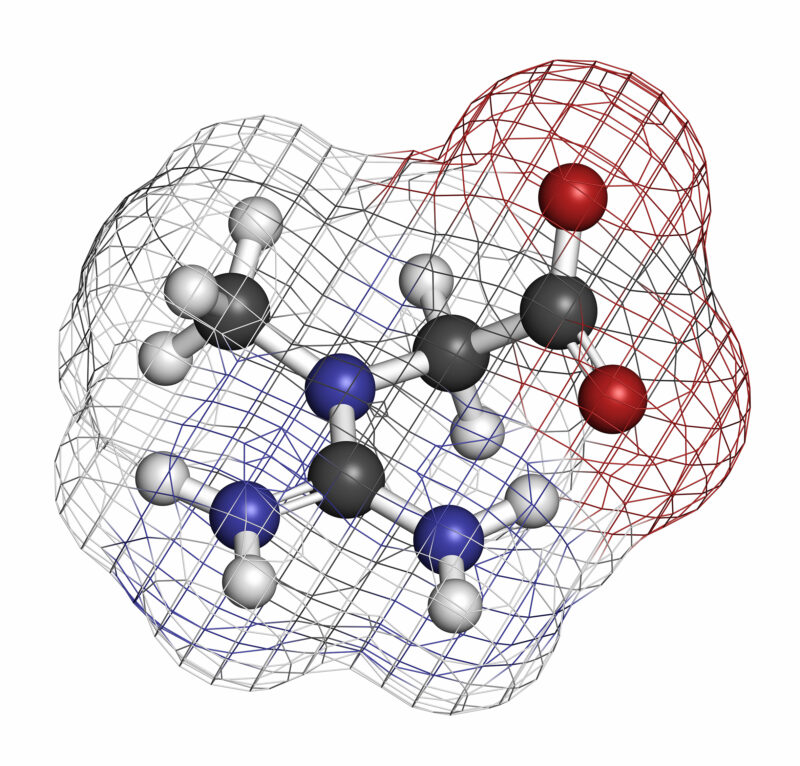Have you ever heard of the compound creatine?
It is a supplement that is often whispered about in gym circles, linked with muscle-bound athletes and weightlifting fanatics. But before you jump to any conclusions, it should be said that creatine is not just about bigger biceps or pushing more weight.
Creatine is a powerful, natural substance that exists in every one of us, quietly fuelling our energy systems and enhancing our ability to perform.
Its potential may well stretch beyond gym walls. Creatine offers benefits for anyone who wants to get more out of their body and possibly their brain. Let us now find out more about creatine, a compound that is still shrouded in myths and misconceptions.
Is it really safe? How does it work? Let us peel back the layers of hype and science to reveal what creatine truly offers.
WHAT IS CREATINE?
Creatine is a naturally occurring compound found primarily in our muscles (95%), and brain and testes (5%). It is composed of three amino acids: arginine, glycine and methionine. We usually obtain creatine through our diet, particularly from red meat and seafood, but our body also produces about 1g of creatine per day in our liver, kidneys and pancreas.
Creatine is also commonly consumed as a form of supplementation, often by those who are seeking higher creatine levels to enhance strength, boost athletic performance or muscle growth. Supplementation often provides far higher levels of creatine than through diet.
In our body, creatine is stored in our muscles in the form of phosphocreatine. This stored form of creatine plays a crucial role in energy production, particularly during high-intensity, short-duration activities like sprinting, weightlifting and explosive movements.
When muscles contract during exercise, they rely on a molecule called adenosine triphosphate (ATP) for energy. However, ATP stores are quickly depleted during intense physical exertion.
Creatine helps to replenish ATP by donating a phosphate group to adenosine diphosphate (ADP), thereby allowing for sustained performance.
There are also people who take oral creatine to treat certain brain disorders, neuromuscular conditions, congestive heart failure and other conditions. Topical creatine has even been used as a treatment for ageing skin. However, these uses require more scientific research to support the claims.
SAFETY PROFILE
Creatine monohydrate is the most widely used and researched form of dietary creatine supplement on the market. More than 1,000 studies have examined its safety, with weight gain from water retention in muscles being the only consistently reported side effect of creatine supplementation.
Short- and long-term studies on creatine supplementation have been conducted in both healthy and diseased populations, including individuals from infancy to old age. These studies, using dosages between 0.3 to 0.8 g/kg/day for up to five years, consistently show that creatine poses no adverse health risks. In fact, creatine supplementation may offer several health and performance benefits.
Additionally, assessments of adverse event reports related to dietary supplementation, including in paediatric populations, have revealed that creatine was rarely mentioned and was not associated with any significant number or any consistent pattern of adverse events.
The International Society of Sports Nutrition concluded that creatine monohydrate is the most effective ergogenic nutritional supplement currently available to athletes with the intention of increasing high-intensity exercise capacity, and lean muscles during training.
The organisation added that creatine monohydrate supplementation is not only safe, but also well-supported by research. There has been no compelling scientific evidence that short- or long-term use of creatine monohydrate (up to 30g/day for five years) causes any harmful effects in otherwise healthy individuals or in clinical populations who may benefit from it.
USES AND RESEARCH
Creatine is used for a variety of purposes. Its benefits are believed to extend beyond mere athletic performance enhancement, encompassing a wide array of physical and cognitive improvements.
However, while some of these primary advantages are supported by a robust body of research, there are others which require more scientific backing.
ENHANCED ATHLETIC PERFORMANCE
Creatine is known for its ability to improve strength, power and speed during high-intensity workouts. According to a 2003 meta-analysis published in the Journal of Sports Science and Medicine, creatine supplementation can increase muscle phosphocreatine content which may improve performance involving short periods of extremely powerful activity, especially during repeated bouts.
It found that creatine supplementation led to an average increase in strength by 8%, weightlifting performance by 14%, and sprint performance by 5%. These findings are consistent across a range of sports and activity types.
Another 2016 study published in Nutrients showed that creatine supplementation appears to provide ergogenic benefits to aerobic endurance bouts with positive physiological adaptations.
Based on these studies, it can be concluded that athletes who supplement with creatine can generally perform more repetitions in weightlifting, sprint faster and maintain a higher level of intensity for longer durations. This makes creatine a go-to compound for athletes participating in sports like football, basketball, and track and field.
However, the same 2003 study also noted that not all individuals reported performance enhancement benefits from creatine supplementation. This may be due to factors such as differences in response to supplementation, length of supplementation, exercise criterion evaluated, and/or the amount of recovery observed during repeated bouts of exercise.
INCREASED MUSCLE MASS
One of the most popular reasons for creatine supplementation is muscle growth. However, it should be noted that creatine does not contribute directly to increase in muscle mass. Instead, it increases muscle mass by enhancing performance, allowing one to work harder when one exercises. Hence, creatine supplementation must be complemented with physical activity to achieve increase in muscle mass.
Creatine pulls water into muscle cells, causing them to swell and appear fuller. While this process makes muscle cells bigger, this is not muscle hypertrophy (growth). But it should be noted that cellular hydration is an important factor controlling cellular protein turnover; including protein synthesis and protein degradation.
Furthermore, according to findings from a 2008 study published in the International Journal of Sport Nutrition and Exercise Metabolism, creatine supplementation during resistance exercise training increases intramuscular IGF-1, a key hormone for muscle growth. These changes may trigger several processes that lead to the formation of new proteins and muscle growth.
Further to these, creatine enhances one’s ability to perform more exercises or repetitions, as well as lift heavier weights per training session. Over time, such activities are a key factor in long-term muscle growth.
Multiple studies have shown that creatine supplementation, when combined with resistance training, significantly boosts muscle mass gains compared to training without supplementation. A 2021 study published in Nutrients found that creatine supplementation, ingested at a regimen of 3-5g/day over four weeks resulted in muscle accretion, besides other effects.
On the other hand, another 2022 scoping review published in Nutrients highlighted the effectiveness of creatine supplementation. It showed that creatine can increase muscle strength, muscle mass, and improve athletic performance in healthy young individuals with adequate training. These benefits were observed across various dosage strategies and athletic activities. However, more high-quality, evidence-based research is still needed to understand the effectiveness of creatine for supporting muscle growth in older adults and individuals with muscle-related conditions.
PREVENTION OF MUSCLE LOSS
Creatine helps increase muscle mass and accelerate muscle growth, especially when combined with physical activity. This makes it particularly beneficial for older adults experiencing sarcopenia, as it may help slow the condition’s progression. Sarcopenia is the gradual loss of muscle strength, mass, and function. It affects an estimated 10–27% of adults aged 60 and older worldwide and is linked to physical disability, reduced quality of life, and a higher risk of mortality.
Several studies in older adults suggest that taking creatine in combination with weightlifting may benefit muscle health.
Creatine supplements may support muscle gain in older adults by helping promote the development of lean muscle mass. A 2017 meta-analysis published in the Open Access Journal of Sports Medicine found that older adults who took creatine and performed resistance training 2–3 times per week for 7 to 52 weeks gained an average of 1.4 kg more lean muscle mass than those who trained without creatine. These findings suggest that creatine for older adults, especially when combined with regular exercise, can be an effective strategy to combat age-related muscle loss and support healthy aging.
Another 2022 review published in Bone on ScienceDirect indicated that creatine monohydrate supplementation, primarily when combined with resistance training, is a viable lifestyle intervention to improve ageing muscle mass, strength and measures of functionality, which may decrease the risk of falls and fractures in older adults.
However, while the combination of creatine and resistance training has some beneficial effects on ageing bone, these benefits disappear when no exercise intervention is used.
ENHANCED BRAIN FUNCTION AND POTENTIAL NEUROPROTECTIVE EFFECTS
Although creatine’s primary association is with physical performance, emerging research suggests that it may also have cognitive benefits. Creatine is thought to support brain health by increasing phosphocreatine stores in the brain, which can improve energy supply to brain cells. It may also provide neuroprotection.
A 2019 review of existing studies published in the journal Experimental Gerontology found that while oral creatine administration may improve short-term memory and intelligence/reasoning of healthy individuals, its effect on other cognitive domains (such as attention, executive function, response inhibition, word fluency, reaction time and mental fatigue) remains unclear.
The findings do suggest potential benefits for ageing and stressed individuals. Interestingly, the study found that young adults were not affected by supplementation.
On the other hand, a 2010 study published in Neuromolecular Medicine hypothesised that creatine may be useful as a therapeutic intervention to target neurological diseases with metabolic/bioenergetic dysfunction as part of their disease etiology, due to its beneficial effects in improving overall cellular bioenergetics and enhancing mitochondrial function.
The evidence suggests that creatine supplementation improves bioenergetic deficits and may exert neuroprotective effects in Parkinson’s and Huntington’s disease. However, evidence also suggests that creatine supplementation is not efficacious in the treatment of Alzheimer’s disease and amyotrophic lateral sclerosis (ALS). Further clinical studies investigating the role of creatine in Parkinson’s and Huntington’s disease will be needed to provide insight and potentially substantiate the neuroprotective role of creatine in these neurological diseases.
SUPPORT HEART HEALTH
Supportive evidence on creatine’s effects on heart health are highly mixed.
A 2022 study on the effects of creatine supplementation (over four weeks) on lipid profile in older adults found that the supplementation led to a significant improvement in triglycerides and glucose, but failed to improve cholesterol, low density lipoprotein, high density lipoprotein or non-high density lipoprotein cholesterol.
Also, in a few studies of people with heart failure, those who took creatine in addition to receiving standard medical care, increased the amount of exercise they could do before becoming fatigued, compared to those who took a placebo.
Getting tired easily is one of the major symptoms of heart failure. One study of 20 people with heart failure found that short-term creatine supplementation in addition to standard medication helped to increase body weight and improved muscle strength. Other studies, however, showed no improvement.
A 2021 study published in Nutrients found that in healthy hearts, there is currently no demonstration that creatine supplementation may improve cardiac function. However, it suggested that creatine supplementation should be trialed in heart failure patients, especially when weakness and fatigue are prominent symptoms.
The study noted on the lack of trials on the effects of creatine supplementation in human patients with myocardial infarction. It suggested that further research should correlate, in individual patients, creatine and phosphocreatine content of the myocardium with the clinical benefits obtained from supplementation, and more research should be carried out on the effects of creatine supplementation in heart ischemia.
TREAT AGEING SKIN
Early research from 2011 published in the Journal of Cosmetic Dermatology suggests that a cream containing creatine and other ingredients applied to the face every day for six weeks might reduce skin sag and wrinkles in men. Another study published in the same journal in 2008 suggests that a cream containing creatine and folic acid improves sun damage, and reduces wrinkles. These data demonstrate the ability of creatine to recharge declining cutaneous energy levels, leading to beneficial effects to prevent and treat age-related changes in human skin. However, more research may be needed to ascertain these effects.
POTENTIAL SIDE EFFECTS
There are some purported side effects on the use of creatine, including dehydration, cramps, and harmful effects on the kidneys or liver. However, creatine is one of the most well-researched supplements available, and studies lasting up to four years have revealed no negative effects; hence, its excellent safety profile as stated at the start of the article.
Although people associate creatine with dehydration and cramps (due to creatine drawing water into the cells), research does not support this link. Studies even suggest it can reduce cramps and dehydration during endurance exercise in high heat. Also, there is no evidence that creatine harms the liver and kidneys in healthy people who take standard doses.
However, people with pre-existing liver or kidney concerns should consult a healthcare provider before starting creatine supplementation.
CONCLUSION
Creatine is a powerful and well-researched supplement with numerous benefits for both physical and cognitive performance. From boosting strength and muscle mass to potentially protecting against neurodegenerative diseases, creatine has a potentially wide range of applications. While its safety profile is generally robust, there also needs to be more clinical studies done to establish its application for improving brain function and heart health, neuroprotection, and for treating ageing skin.
Nevertheless, it is well established that creatine is a valuable tool for athletes and fitness enthusiasts looking to improve athletic performance and grow muscles. But no matter its effects, do keep in mind that you should always consult a healthcare professional before starting a new supplementation regimen, especially if you have pre-existing health concerns. PRIME














Leave A Comment